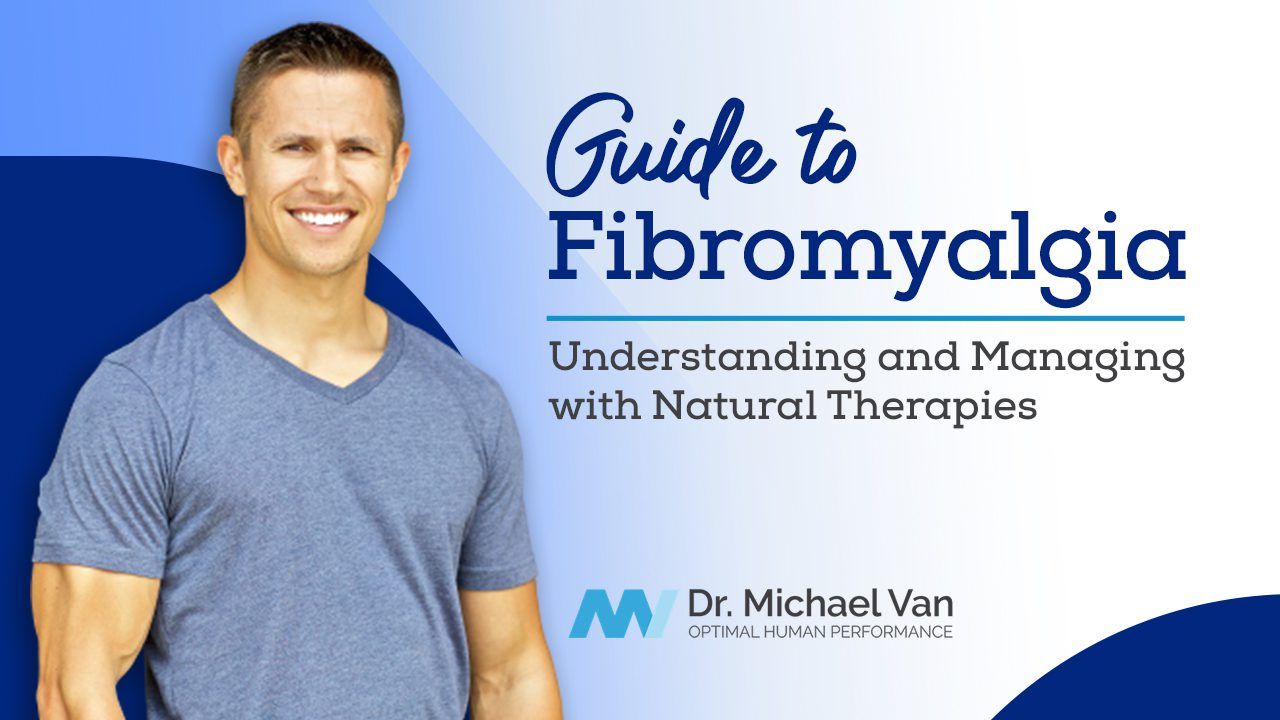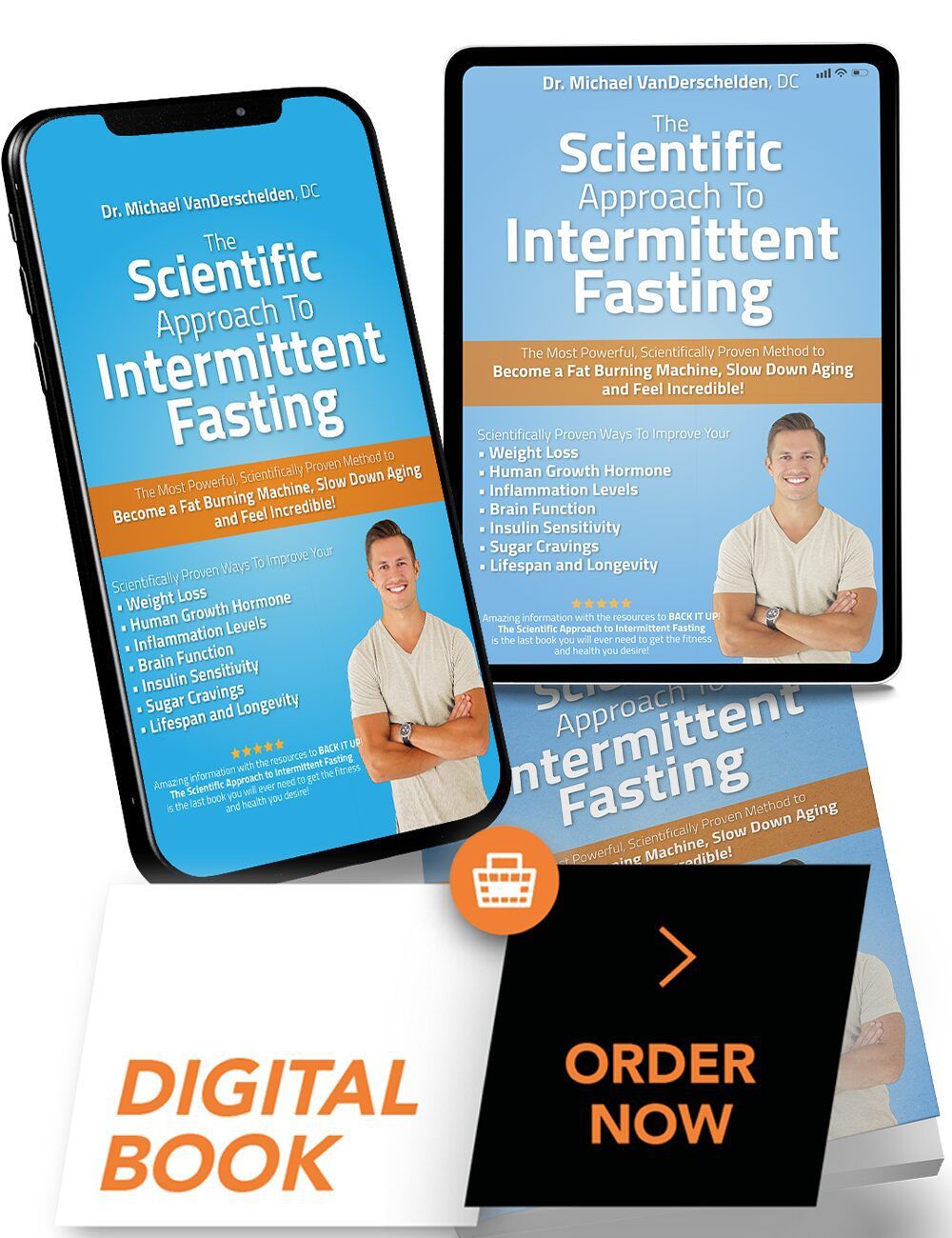Guide to Fibromyalgia: Understanding and Managing with Natural Therapies


Fibromyalgia is a chronic condition characterized by widespread pain, sensitivity to touch, and extreme fatigue, among other symptoms. It is a complex disorder that, unlike other conditions with identifiable causes like a broken bone or inflammation, does not have a clear origin. Instead, it is thought to result from a variety of factors that affect the way your brain processes pain signals.
The reality of living with fibromyalgia can be challenging, and traditional treatment methods can often prove insufficient or accompanied by undesirable side effects. However, there is hope for those living with fibromyalgia, as a holistic approach to managing the condition can refer to a number of natural therapies and lifestyle modifications. With his extensive experience in chronic pain management, Dr. Michael Van is dedicated to helping individuals navigate this intricate journey to decreased pain and improved overall health.
Understanding fibromyalgia and its associated implications is a crucial first step in its effective management. In this comprehensive guide, we will be delving into the fundamentals of fibromyalgia–its symptoms, potential causes, and its impact on individuals' daily lives.
Additionally, we'll expound on how natural therapies, including the exciting field of regenerative medicine, can offer substantial relief. While tackling fibromyalgia can be an ongoing process, it's important to remember that it is not a journey you must travel alone. Dr. Michael Van and his team are committed to providing valuable guidance and support along the way, proffering insight into cutting-edge and alternative treatments for chronic pain conditions.
Stay connected with our blog for informative content that can help transform your health, and empower you towards battling chronic pain effectively.
Comprehensive Overview of Fibromyalgia Symptoms
Fibromyalgia presents a myriad of symptoms that can vary in severity and duration. While widespread pain is the most commonly known symptom, fibromyalgia also causes tender points on the body, extreme fatigue, sleep disturbances, and cognitive difficulties.
Tender points are specific areas on the body where pain might be experienced when touched or pressed, such as the back of the head, tops of the shoulders, and upper chest. Cognitive difficulties, sometimes known as "fibro fog," can manifest as memory problems, difficulty concentrating, and slow information processing.
These symptoms can significantly impact the daily life of individuals living with fibromyalgia, often making it difficult to partake in regular activities or maintain a consistent work schedule.
Potential Triggers and Causes of Fibromyalgia
The exact cause of fibromyalgia remains unknown, making it a particularly complex condition to understand and treat. It is thought that genetics, infections, physical or emotional trauma, and stress might all play a role in the development of the disorder.
Fibromyalgia also often coexists with other conditions, such as irritable bowel syndrome (IBS), chronic fatigue syndrome, and temporomandibular joint disorder (TMJD). The connections between these conditions are not completely understood, but managing these concurrent issues can be beneficial for treating fibromyalgia as a whole.
Addressing Mental Health: Mindful Practices for Fibromyalgia
It's common for individuals with fibromyalgia to experience anxiety, depression, or mood swings due to the chronic nature of the disorder and the limitations it can impose on their daily lives. Mindful practices and relaxation techniques can help ease these mental health challenges while reducing stress–a known trigger of fibromyalgia symptoms.
Methods such as deep breathing exercises, progressive muscle relaxation, and guided imagery can be easily incorporated into daily routines and facilitate a calmer state of mind. Meditation and mindfulness practices can also foster a greater sense of control and emotional resilience when dealing with fibromyalgia symptoms.
Diet and Exercise: Tailoring Your Lifestyle for Fibromyalgia Management
Maintaining a balanced, nutritious diet, and engaging in regular exercise are central components of fibromyalgia management. Making dietary adjustments and staying active can significantly impact the severity of symptoms and improve overall quality of life.
Consuming a whole-food, plant-based diet rich in vegetables, fruits, whole grains, lean proteins, and healthy fats can promote general wellness while providing essential nutrients for energy and functioning. On the other hand, limiting inflammatory foods like processed foods, refined sugars, and excess caffeine can help reduce the frequency of fibromyalgia flare-ups.
Exercise can be particularly beneficial for individuals with fibromyalgia, as it strengthens muscles, increases energy levels, and improves mood. Low-impact activities such as walking, swimming, and yoga are typically recommended, with a gradual increase in intensity to prevent exacerbating symptoms.
Regenerative Medicine: A Cutting-Edge Approach to Fibromyalgia Relief
Regenerative medicine is an innovative field that has made leaps and bounds in the treatment of medical conditions that cause chronic pain, including fibromyalgia. It involves using the body's natural healing mechanisms, such as stem cells and platelet-rich plasma (PRP), to repair damaged tissues and promote overall healing.
For fibromyalgia patients, regenerative medicine therapies can help mitigate pain, reduce inflammation, and improve overall functionality. By regenerating damaged cells and tissues, these treatments may offer a more lasting solution than traditional therapies that mask pain or control symptoms.
Conclusion
Though fibromyalgia is a complex and often daunting condition to manage, it's crucial to remember that a multi-faceted approach encompassing physical, emotional, and lifestyle factors can make a significant difference in symptom management and quality of life. By addressing both the root causes and the effects of fibromyalgia, patients can begin navigating the path to long-term relief.
With a wealth of experience in chronic pain management and a commitment to emphasizing holistic care, Dr. Michael Van stands as a valuable resource and trusted guide for individuals grappling with fibromyalgia. Through his expertise in regenerative medicine, natural therapies, and lifestyle adjustments, Dr. Van aims to empower patients with the tools they need to take control of their health and reclaim their well-being.
Stay tuned to Dr. Michael Van’s blog for enlightening content on fibromyalgia and the latest advancements in treatments and therapies aimed at fostering a more fulfilling life–free from chronic pain. Make sure to browse through our website for ongoing information, resources, and support in your journey to improved health and wellness. Contact me if you’re looking for a Huntington Beach chiropractor!
Dr. Michael Vanderschelden, DC
18600 Main St STE 110
Huntington Beach, CA 92648
Site designed by iTech Valet
Dr. Michael Vanderschelden, DC
18600 Main St STE 110
Huntington Beach, CA 92648
Site designed by iTech Valet
*These statements have not been evaluated by the Food and Drug Administration. These products are not intended to diagnose, treat, cure or prevent any disease.



